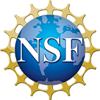
CISE Research Experiences for Undergraduates (REU) Program Webinar
NSF’s Directorate for Computer and Information Science and Engineering (CISE) is providing information on the Research Experiences for Undergraduates (REU) program solicitation NSF 19-582 via a webinar on August 6th, 2021 starting at 12:00 pm ET. The event page can be found by clicking here, which includes more information about the webinar and a list of clarifications for specifically REU Site proposals.
One important clarification is the new option for the required evaluation component of the REU Site proposal. PIs are encouraged to work with the CRA Center for Evaluating the Research Pipeline to fulfill the evaluation requirement of the REU Sites program. Submit an interest form to sign up and for a statement to include in your proposal. If you choose to participate in this evaluation, you do not have to include evaluation in your budget.
Additionally, the webinar will include a briefing on the CISE REU program and key solicitation requirements followed by a question-and-answer session. Prior to the webinar, you can submit questions to cise.reu@nsf.gov.
Register in advance for this webinar, which will take place via Zoom:
https://nsf.zoomgov.com/webinar/register/WN_OMIx_4NoQd6AXF8w7VTr0g
After registering, a confirmation email will be sent containing information about how to join the webinar. Participants will be able to join in a listen-only mode and interact through the Q&A function.
Contact: Rebecca Shearman rshearman@nsf.gov
This community update is brought to you by the CRA’s Center for Evaluating the Research Pipeline (CERP). CERP provides social science research and comparative evaluation for the computing community. Subscribe to the CERP newsletter & bulletin by clicking here. Volunteer for Data Buddies by signing up here.







